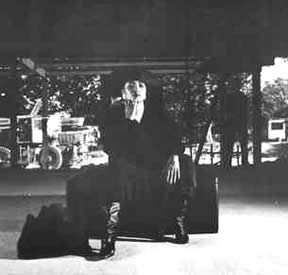
Style(s): Blues
“Russ, I just wanted to let you know that Joyce was great. She and her band were the perfect complement to Marie Louise’s wedding reception. It has been a pleasure working with you and RAM Entertainment and I hope we will have occasion to use your fine services in the future. With every good wish.”
FRANK CRUMP
WEDDING RECEPTION
Joyce was born in Okmulgee, Oklahoma and reared in Nashville. Early in her career she landed a record deal with a subsidiary of Stax Records and continued her recording career with the West Coast based Creem Records. At the same time, Joyce participated in a project for RCA Records. She recorded a single that earned #42 and an album that peaked at #11 on the Billboard Magazine charts.
In April 1992, JOYCE COBB’S On Beale Street opened to rave reviews, with Cobb being the first female to have a nightclub named in her honor. Joyce has been voted “Best Female Singer” by the Memphis chapter of NARAS (National Association of Recording Artists and Songwriters) and named “Best Female Entertainer” by the Beale Street Merchants Association. In the early ’90’s Joyce performed on the traditional jazz circuit regularly with the Hot Cotton Jazz Band.
Joyce is presently a member of the University of Memphis faculty, teaching jazz vocals in the Commercial Jazz Department. Ms. Cobb can be heard in Memphis on WEVL FM90, with her two shows, “Voices”, which features a variety of vocalists and personal interviews; and “Songs For My Father”, a program that shares a collection of instrumental jazz music.
Commercial Appeal Article from March 2002
‘She’s the Queen’
Joyce Cobb honored for sharing her talents
The Commercial Appeal
By Bill Ellis
March 22, 2002
Memphis has more than its share of talent, especially the singing kind. Yet one woman has taken that talent in about as many directions as it can go and still is known as one of our city’s finest live performers.
If you’ve spent any time at all hitting the clubs and restaurants of Memphis, you’ve heard Joyce Cobb, whose big, vivacious voice can interpret everything from pop to country to classical to her truest love, jazz.
Cobb also has owned her own club, hosted a national radio program and taken a musical revue on the road. She teaches at the University of Memphis and is a tireless volunteer, maintaining four programs on WEVL-FM 89.9 and involving herself in endless benefits. She’s had a few hit records along the way, too.
“Memphis has embraced me to the point of making it very comfortable to live and pay bills and do what I like to do, which is music,” says Cobb, 56. “It hasn’t been very difficult from clubs to festivals to travel to symphonies to big band and Beale Street. I came and I stayed.”
Because of her impact on Memphis, Cobb will be honored at the 18th annual Women of Achievement awards dinner 6 p.m. Sunday at the Memphis Marriott, 2625 Thousand Oaks Blvd. (call 272-0560 for dinner seating, $25).
Cobb, a recipient of the organization’s Initiative award, will be honored along with seven other women. They are: Dr. Juanita Williamson, linguist and distinguished service professor of English at LeMoyne-Owen College, for heritage; Mississippi Riverbluff Walkway activists Tandy Gilliland and Patricia Merrill for courage; Neighborhood Christian Center founder Joe Ann Ballard for determination; fund-raiser and former executive director of Girls Inc. of Memphis Fannie Belle Burnett for steadfastness; chemical worker Sharon Pollard, who won a sexual harassment suit against DuPont, for heroism; and lawyer Nancy Sorak, a member of Tennessee’s first all-female law firm and the first woman to serve as a city public defender in Memphis, for vision.
“The Initiative category is for a woman who sees the opportunity to use her talents and created her own future,” says Women of Achievement president Virginia Stallworth about the choice of Cobb. “And there’s no doubt of the talent of Joyce Cobb and also of the involvement that she’s had in our community, not only as a singer and songwriter but as someone who’s tried to reach out and educate other people. We thought she was the perfect person to honor this year.”
Comprising a diverse coalition of organizations and individuals, Women of Achievement was founded in 1984 to recognize the contributions of women in Memphis and Shelby County. The group’s annual awards event, which benefits the Memphis Child Advocacy Center, is timed to coincide with National Women’s History Month.
Cobb is only the fourth music-related honoree in the organization’s 17 years behind Center for Southern Folklore head Judy Peiser and last year’s recipients, rockabilly guitarist/label owner Cordell Jackson and Sun Records office manager Marion Keisker.Musicians who know Cobb say the honor is deserved.
She’s given a lot to Memphis music,” says singer Susan Marshall. “She’s amazing.”
Entertainer Reba Russell, who has sung with Cobb and Wendy Moten as part of the “Beale Street Divas,” agrees: “Joyce has always been an encouragement to anybody young or new or just starting out and has been one of my main inspirations in Memphis. I can’t think of enough accolades to lay on her. . . . She’s the queen.”
Like many “Memphis” artists, Cobb is not from here. Born in Okmulgee, Okla., she moved around a bit, thanks to academic instructor parents, before settling in Nashville, where she went to parochial school and got the singing bug in choir.
Cobb majored in social welfare, however, not music, when she went to college at Central State University in Wilberforce, Ohio, near Dayton, the town that gave her her first gig.
I met this guy, Bill Temme, he had a wife and a dog,” recounts Cobb, who was working for the Office of Economic Opportunity at the time. “He had just graduated from William and Mary in theater and was working at Rike’s department store. He played guitar, and I was playing guitar. He had a Shure PA system so I said, ‘Oh, let’s get together.’ We rehearsed six months in the basement of this condominium we both lived in. We went out and auditioned, got a job with the Ramada Inn circuit and made more money per week than I would have ever made in social work. I never turned back.”
Back in Nashville, Cobb made a name for herself performing at Opryland, with the Nashville symphony and on WSM radio and TV.
Then came the dream of a lifetime. She got signed to Stax – and as a country singer. Unfortunately, she got signed right as the famed soul label was folding.
“I was going to be the next ‘Charlene’ Pride,” says Cobb about coming to Stax and Memphis in the mid-’70s. “At that time, (company head) Jim Stewart was interested in a subsidiary label that handled country music. He heard my demo from Nashville. He thought my voice sounded right, and I was black and he thought that would have been a good move. I think O.B. McClinton and I were the two signed to that deal.”
Stax went bust and so did Cobb’s shot.
“Almost made it,” she says now with nary a regret. “It’s all about timing.”
Timing was better in 1979 when Cobb scored a hit on Al Bennett’s Cream label, the 1979 R&B single Dig the Gold. Cobb was playing at the Holiday Inn on McLean at the time when she was approached by Wayne Crook and Shoe Productions.
“They told me to stay (in Memphis) and start writing music. The next year after I signed with Shoe, I wrote Dig the Gold, which went to 42 on Billboard. It got a lot of airplay on the West.”
In the early ’80s, Cobb was also featured vocalist on an RCA LP, “Good to Me,” a disco record orchestrated by local jazz harmonica virtuoso Pete Pedersen.
She had one more single in the early ’90s for Willie Mitchell’s Waylo Records, Another Lonely Night, which spent time on the British charts. Several trips to Europe followed including a tour with Otis Clay.
But Cobb has done much more than her scant recordings might suggest. In fact, it’s her career sans the studio that has truly blossomed.
She has sung with the Memphis Symphony Orchestra on numerous occasions; is a four-time winner for Best Female Vocalist (’86, ’88, ’96 and ’97) at the Premier Player Awards; received an honorary Doctor of Humane Letters from Grand Valley State University in Allendale, Mich., in 1995; co-hosted the Blues Foundation’s internationally-syndicated radio show Beale Street Caravan in 1997 with Sam the Sham; and has been in several musical theater productions including a touring revue through the Center for Southern Folklore and director/writer Frank Bluestein, the acclaimed Beale Street Saturday Night (which Cobb conceived).
She ran her own namesake club, Joyce Cobb’s, on Beale from 1992-1994, something she would love to do again given the opportunity.
“I’ve had to do everything to keep going,” she says. “But if I could open a jazz club at this time, I would do it in a heartbeat. I dream about it every night. I’ve got tourists that come in, they want to know where they can hear jazz, and I can only give them two or three places. So there’s a need. To honor Jimmie Lunceford and Mulgrew Miller and Mose Allison and George Coleman and all of these great people. Where is there any recognition with or without drinks?”
Cobb has been a WEVL volunteer more than a decade and juggles four radio programs. On Tuesdays it’s Memphis Beat (old and new local music) from 1-2 p.m. followed by her “baby,” Voices from 2-4 p.m. (“a sort of potpourri of a lot of voices, but it’s really my conscience of music”). Then on Wednesdays, Cobb does Songs for My Father (bebop and big band era tunes) from 8-10 p.m. and Pressure Drop (reggae) from 10-midnight.
She also teaches voice in the commercial jazz department at the University of Memphis, something she’s done for more than a decade, and can be heard every Sunday for brunch in a jazz-and-more trio at Boscos Squared. The singer and multi-instrumentalist maintains a bigger group as well, her long-standing ensemble Cool Heat.
And, yes, she can be found on a few extra recordings, including two by Dixieland troupe the Beale Street Jazz Band, “Jazzin’ on Beale” (1997) and “Outstanding on Beale Street” (1999). And Cobb is in the process of making her first solo CD.
It’ll be the first time in my whole life that I’m in control of what I want to sing about,” she says.
If there’s one overriding philosophy in all Cobb does, it’s her belief that music should connect with people, hence the numerous benefits in which she participates – one recent weekend found her singing for both the Memphis Heart Gala and Friends for Life. Cobb’s training as a social worker, it would seem, shows itself every time she gets in front of a microphone.
“Music is a social work,” she says. “It’s a medication, it’s a stimulation, it’s an opening of conscience, of feeling. Scream it out, shout it out, cry it out.
I’m blessed by God with this gift of music. I don’t think that everyone can be. I think it’s only for special folks, and by having that gift you have a responsibility to share it, to give it away and to expose it for helping, motivating or stimulating people. I feel that we are the main communicators of the universe. It goes beyond politics, racism, economics. Music is the glue of the Earth. And I’m so proud to be part of it.”


